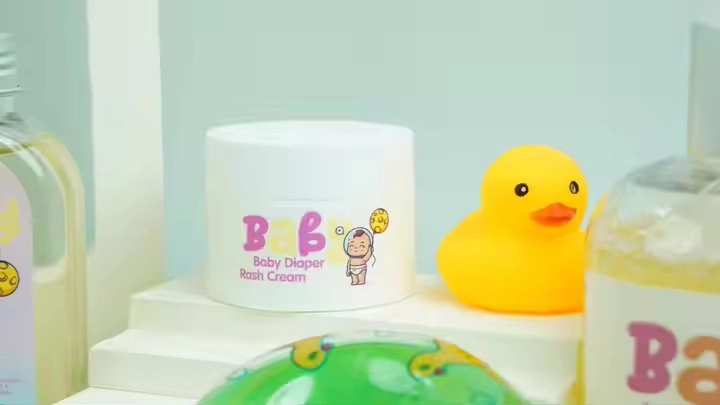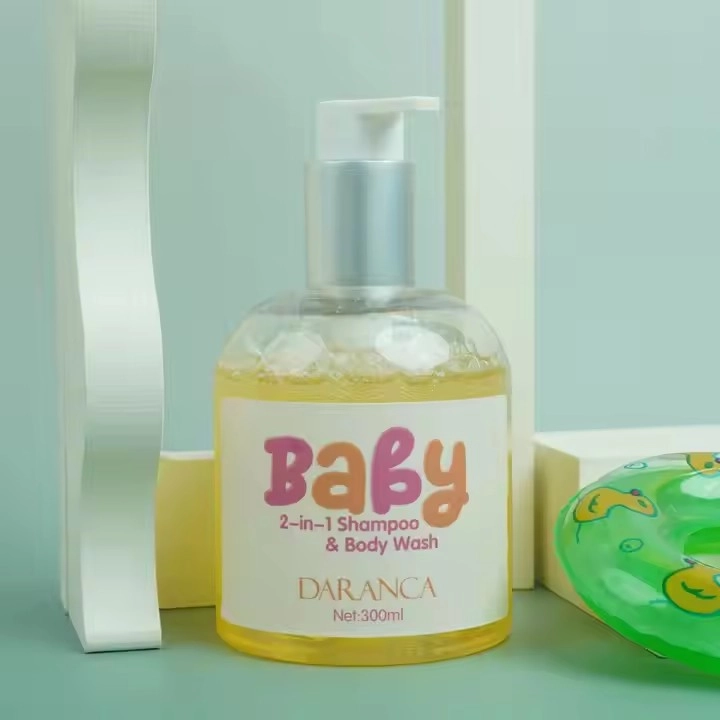Views: 220 Author: cosmeticsinhot Publish Time: 2025-11-15 Origin: Site








Content Menu
● Understanding Baby Skin Types
>> Normal Skin
>> Dry Skin
>> Oily Skin
● Choosing Products for Each Skin Type
>> Products for Sensitive Skin
>> Products for Combination Skin
● General Tips for Choosing Baby Care Products
>> Consult with a Pediatrician
>> 1. What are the signs of sensitive skin in babies?
>> 2. How often should I bathe my baby?
>> 3. Can I use adult skincare products on my baby?
>> 4. What ingredients should I avoid in baby skincare products?
>> 5. How can I treat diaper rash effectively?
Choosing the right baby care products is crucial for ensuring the health and comfort of your little one. Babies have delicate skin that can vary significantly from one child to another, making it essential to select products tailored to their specific skin type. This article will guide you through the different skin types of babies and how to choose the best care products for each.

Before diving into product selection, it's important to understand the various skin types that babies can have. The most common types include:
Normal skin is well-balanced, neither too oily nor too dry. It typically appears smooth and has a healthy glow. Babies with normal skin can usually tolerate a variety of products without adverse reactions.
Dry skin in babies can appear flaky, rough, or even cracked. This skin type may require more intensive moisturizing products to maintain hydration and prevent irritation.
Some babies may have oily skin, which can lead to a shiny appearance and may be prone to acne or other skin issues. This skin type often requires lightweight, non-comedogenic products that won't clog pores.
Sensitive skin is more reactive and can easily become irritated by products, fabrics, or environmental factors. Babies with sensitive skin need gentle, hypoallergenic products that are free from fragrances and harsh chemicals.
Combination skin can exhibit characteristics of both dry and oily skin, often with an oily T-zone (forehead, nose, and chin) and dry patches elsewhere. This skin type requires a balanced approach to product selection.
For babies with normal skin, the focus should be on maintaining balance without overwhelming the skin with too many products.
- Gentle Cleanser: Use a mild, fragrance-free cleanser to wash the baby's skin. Look for products that are specifically formulated for babies.
- Moisturizer: A light lotion or cream can be applied after bathing to keep the skin hydrated. Ingredients like aloe vera or shea butter are excellent choices.
Dry skin requires extra care to ensure it remains hydrated and protected.
- Rich Moisturizing Cream: Look for creams that contain ingredients like ceramides, glycerin, or natural oils (such as coconut or almond oil) to lock in moisture.
- Ointments: For particularly dry areas, consider using an ointment that provides a thicker barrier against moisture loss.
Oily skin needs products that cleanse effectively without stripping the skin of its natural oils.
- Foaming Cleanser: A gentle foaming cleanser can help remove excess oil without being too harsh.
- Lightweight Moisturizer: Choose a non-comedogenic moisturizer that hydrates without adding extra oil. Gel-based products are often a good choice.
Sensitive skin requires the utmost care to avoid irritation and allergic reactions.
- Hypoallergenic Products: Always opt for products labeled as hypoallergenic and free from fragrances, dyes, and parabens.
- Natural Oils: Simple oils like jojoba or sunflower oil can be soothing and moisturizing without causing irritation.
Combination skin can be tricky, as it requires addressing both dry and oily areas.
- Balancing Cleanser: A gentle cleanser that can effectively clean without over-drying is essential.
- Dual-Action Moisturizer: Look for a moisturizer that hydrates dry areas while being lightweight enough for oily zones.
When selecting baby care products, consider the following tips to ensure you make the best choices for your child's skin:
Always check the ingredient list on baby products. Look for terms like "fragrance-free," "paraben-free," and "dermatologist-tested." Avoid products with long, complicated ingredient lists that include potential irritants.
Before using a new product on your baby, perform a patch test. Apply a small amount to a discreet area of skin and wait 24 hours to see if any reaction occurs.
If your baby has specific skin concerns or conditions, consult with a pediatrician or dermatologist. They can provide tailored recommendations based on your baby's unique needs.
Baby skin can react differently depending on the season. In winter, for example, skin may become drier due to cold air, necessitating richer moisturizers. In summer, lighter products may be more appropriate.
Less is often more when it comes to baby skincare. Stick to a few essential products rather than a full range of items. This approach minimizes the risk of irritation and allows you to monitor how your baby's skin reacts.

Sensitive skin may show signs such as redness, rashes, or irritation after using certain products. Babies may also be more prone to eczema or other skin conditions.
For newborns, bathing 2-3 times a week is usually sufficient. Over-bathing can strip the skin of natural oils, leading to dryness.
It is not recommended to use adult skincare products on babies, as their skin is more delicate and may react negatively to stronger formulations.
Avoid products with fragrances, parabens, sulfates, and alcohol, as these can irritate sensitive baby skin.
To treat diaper rash, keep the area clean and dry, change diapers frequently, and apply a barrier cream containing zinc oxide or petroleum jelly to protect the skin.
Choosing the right baby care products for different skin types is essential for maintaining your baby's skin health. By understanding your baby's specific skin type and selecting appropriate products, you can help ensure their skin remains healthy, hydrated, and irritation-free. Always prioritize gentle, safe ingredients and consult with healthcare professionals when in doubt.
Hot Tags: China, Global, OEM, private label, manufacturers, factory, suppliers, manufacturing company